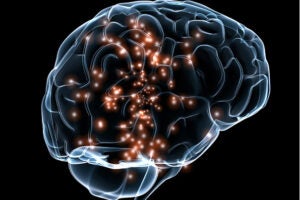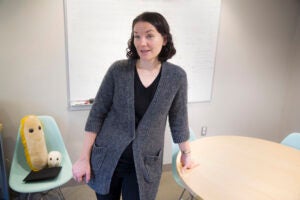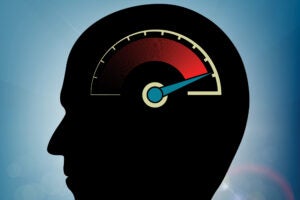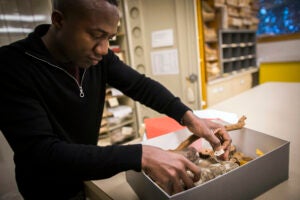Tag: Faculty of Arts and Sciences
-
Nation & World
Expanding support for leading research
A gift from Josh Friedman ’76, M.B.A. ’80, J.D. ’82, and Beth Friedman, longstanding benefactors of the University, will double the resources available for high-risk, high-reward science, allowing more of the most ambitious research projects at Harvard to move forward.
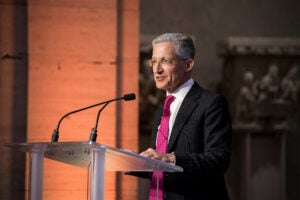
-
Nation & World
Rewarding remarkable studies
The annual awards created through a gift from James A. Star ’83 fund research unlikely to be funded through other programs — risky studies with the potential to contribute to radical new understandings of our world.
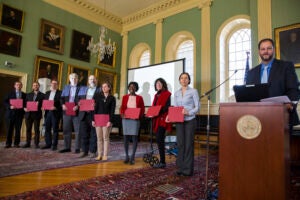
-
Nation & World
Moving beyond the scientific nudge
In a study published in Nature Human Behavior, Harvard’s Michèle Lamont argues that if researchers want to capture a fuller picture of human behavior, they need a new approach that bridges the gap between sociology and cognitive psychology.
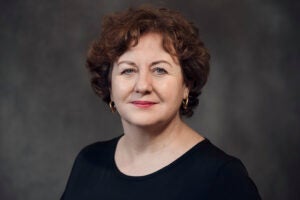
-
Nation & World
Carbon consumers
Natural lab holds promise to transform understanding of deep-ocean carbon cycling, says Professor Peter Girguis.

-
Nation & World
Choosing partners or rivals
A new study shows that in repeated interactions winning strategies involve either partners or rivals, but only partnership allows for cooperation.

-
Nation & World
Research sheds light on how parents operate
In a new study, Harvard researchers describe how separate pools of neurons control individual aspects of parenting behavior in mice.

-
Nation & World
Developing micron-sized magnetic resonance
Harvard scientists have developed a system that uses nitrogen-vacancy centers — atomic-scale impurities in diamonds — to read the nuclear magnetic resonance signals produced by samples as small as a single cell — and they did it on a shoestring budget using a 53-year-old, donated electromagnet.
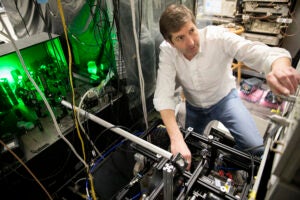
-
Nation & World
FAS stars honored with Dean’s Distinction Awards
Four teams and 61 employees from across FAS were honored at the annual Dean’s Distinction Awards ceremony.
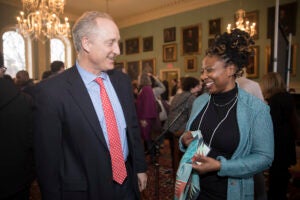
-
Nation & World
Behind the numbers, a deep personal dimension to financial aid
Stories from Haley Catherine Curtin ’18 and other Harvard students illuminate the personal dimension of financial aid.
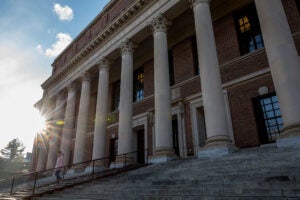
-
Nation & World
A role for cyanide in recipe for life
New Harvard findings show that a mixture of cyanide and copper, when irradiated with UV light, could have helped form the building blocks of life on early Earth.
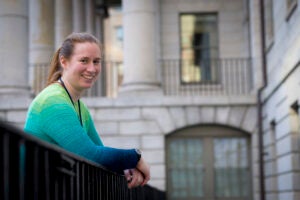
-
Nation & World
Learning to find ‘quiet’ earthquakes
Assistant Professor of Earth and Planetary Sciences Marine Denolle is one of several co-authors of a study that used computer-learning algorithms to identify small earthquakes buried in seismic noise.
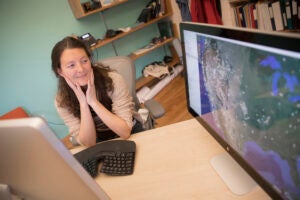
-
Nation & World
A new view of the moon
Harvard grad student Simon Lock is the lead author of a study that challenges conventional wisdom on how the moon formed.

-
Nation & World
For this flower, it’s ready, set, launch
Harvard researchers used high-speed video to not only quantify how fast the filaments in mountain laurel flowers move, but how they target likely pollinators.
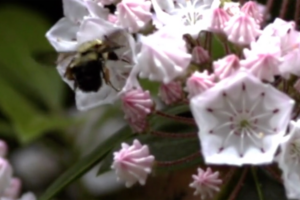
-
Nation & World
James McCarthy recognized for climate change insights
Tyler Prize winner James McCarthy, a professor of biological oceanography and Alexander Agassiz Professor of Biological Oceanography in the Museum of Comparative Zoology, remains optimistic that climate change is a solvable problem.
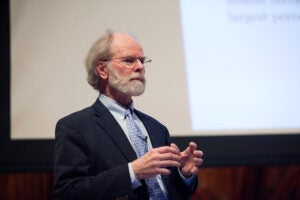
-
Nation & World
Expanding the reach of the bionic leaf
With eye on population growth, postdoc Kelsey Sakimoto teamed up with “bionic leaf” developers on a project to aid agriculture in developing world.
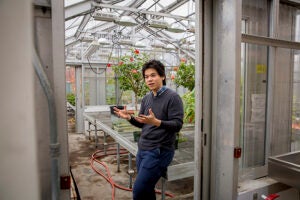
-
Nation & World
Songs in the key of humanity
A new Harvard study suggests that people around the globe can identify lullabies, dancing songs, and healing songs — regardless of the songs’ cultural origin — after hearing just a 14-second clip.
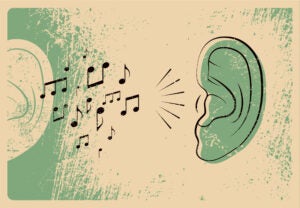
-
Nation & World
Picture-perfect approach to science
After creating a 3-D language called quon, which could be used to understand concepts related to quantum information theory, Harvard mathematicians now say the language offers tantalizing hints that it could offer insight into a host of other areas in mathematics, from algebra to Fourier analysis, and in theoretical physics from statistical physics to string…
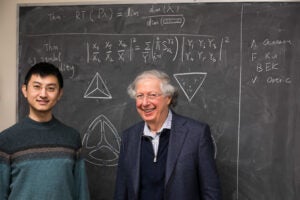
-
Nation & World
For answers on coral conservation, she followed the fish
A new study suggests that efforts to restore coral reefs have a positive impact on fish populations, both short- and long-term.
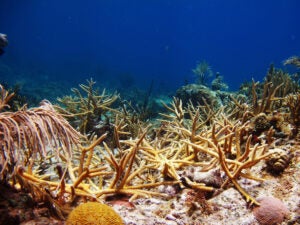
-
Nation & World
As climate changes, so will wine grapes
Though vineyards might be able to counteract some effects of climate change by planting lesser-known grape varieties, scientists and vintners need a better understanding of the wide diversity of grapes and their adaptions.
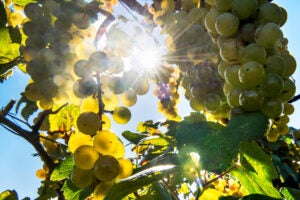
-
Nation & World
Discerning bird
To look at him, Griffin doesn’t seem like he’d be smarter than your typical 4-year-old — he’s a bird, after all. But the African grey parrot can easily outperform young children on certain tests, including one that measures understanding of volume.
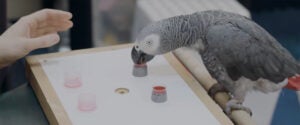
-
Nation & World
Study identifies hundreds of genetic ‘switches’ that affect height
Researchers discovered hundreds of genetic “switches” that influence height, then performed tests that demonstrated how one such switch altered the function of a key gene involved in height difference.
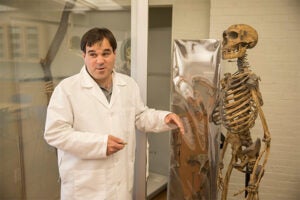
-
Nation & World
Researchers create quantum calculator
Researchers have developed a special type of quantum computer, known as a quantum simulator, that is programmed by capturing super-cooled rubidium atoms with lasers and arranging them in a specific order, then allowing quantum mechanics to do the necessary calculations.
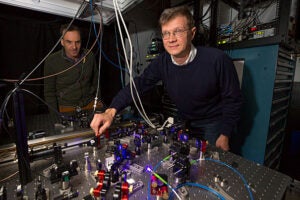
-
Nation & World
Not easily persuasive
Visiting professor and Washington Post political columnist E.J. Dionne on how he started as a journalist, self-editing, and the art of persuasion.
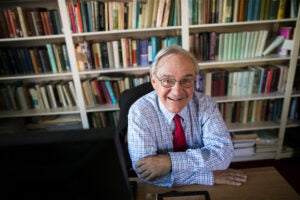
-
Nation & World
Scholar’s eye for fashion
Harvard senior Lily Calcagnini’s history and literature concentration places fashion front and center in cultural theory.
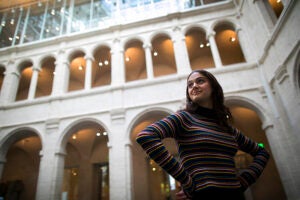
-
Nation & World
Unraveling the brain’s secrets
Harvard scientists are among those who will receive more than $150 million in funding over the next five years through the National Institutes of Health’s Brain Research through Advancing Innovative Neurotechnologies (BRAIN) Initiative.
